Social venture Menstrupedia aspires to break period taboos by providing an innovative way to educate girls and boys about female and reproductive health.
“A period should end a sentence, not a girl’s education” – hands-down my favorite quote from this year’s Oscars by the winners of the documentary short category whose movie aims to shed light on period poverty and the relentless fight for menstrual equality in India.
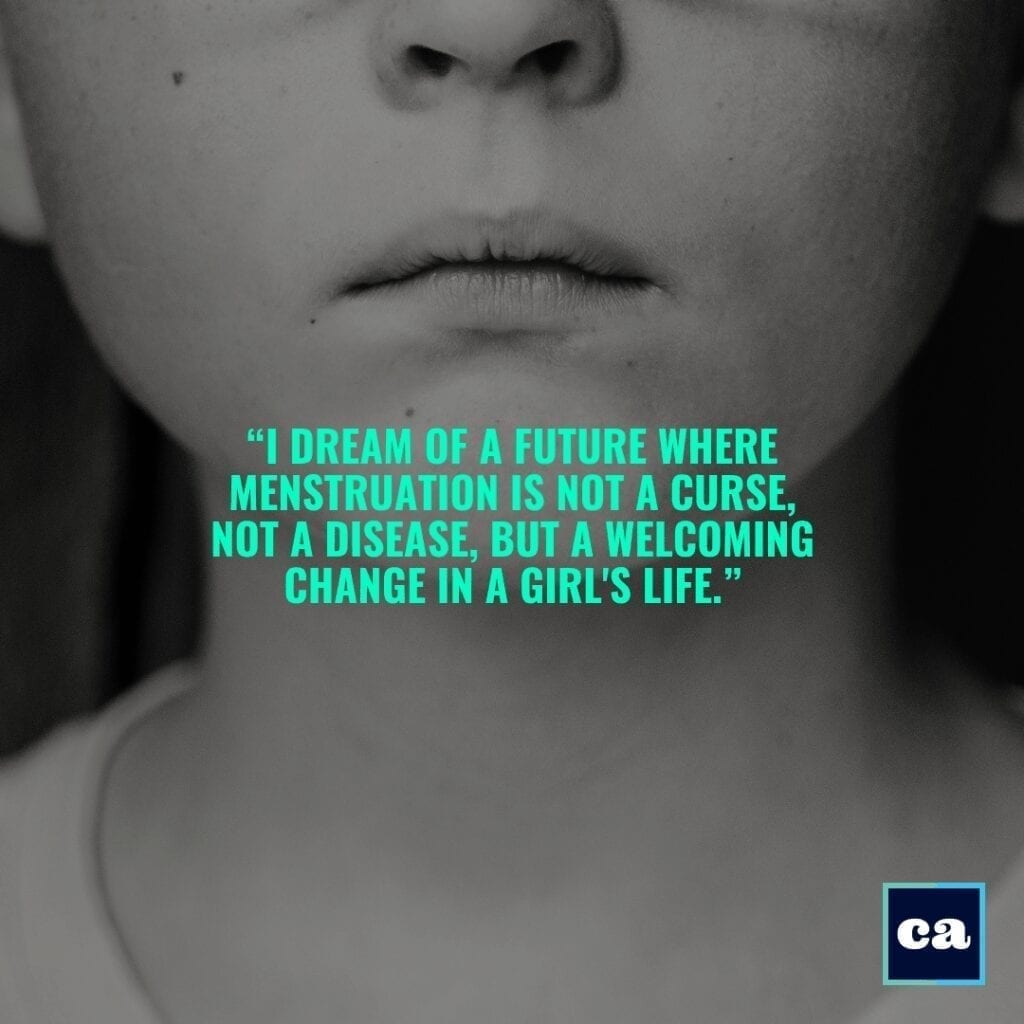
Menstrual hygiene is one of today’s most challenging developmental issues with a significant impact on the health and education of women and girls, and the future of our planet.
As our monthly cycle continues to be a topic avoided and censored around the world, Aditi Gupta, co-founder of social venture Menstrupedia set out to create more period-positive classrooms and households through the medium of comic books.
Period as a taboo
Poor sanitation practices in many developing countries are often exacerbated by a plethora of superstitions and stigmas associated with periods, with devastating repercussions for the psychological and physical well-being of girls.
In Indonesia, a UNICEF study has shown that 17% of girls are bullied because of their period, forcing them to skip and often drop out of school, while on the island of Sumba, villagers believe sexual diseases are caused by menstruating women.
Girls also receive very little information at home or at school about female hygiene and sanitation best practices. 1 out of 3 schoolgirls in South Asia do not know what menstruation means prior to their first period , and only 2.5% of them are aware that menstrual blood comes from the uterus.
Menstruation huts
In the Western part of Nepal, women and girls are sequestered in so-called menstruation huts during their period with no access to electricity, ventilation or food. Chhaupadi is a common practice where menstruating women, considered unclean because of their period, are not allowed to touch people, cattle, fruits, vegetables, plants or even books, or access water for fear of destroying crops, livestock or even people’s lives.
Countless cases were reported of girls who starved to death during their period, who died of animal bites or who suffocated because of inhaling smoke after lighting a fire to keep warm, especially during the freezing winter months.
Following a series of high-profile death cases and subsequent international outrage, chhaupadi was outlawed in 2017, but the law is not properly enforced and continues to be violated.
Many believe that to completely root out this deadly tradition in these largely patriarchal societies, a legislative solution is not sufficient, and that the century-long stigmas, superstitions and bad luck associated with periods must be erased through education of women and men alike.
A comic book about periods
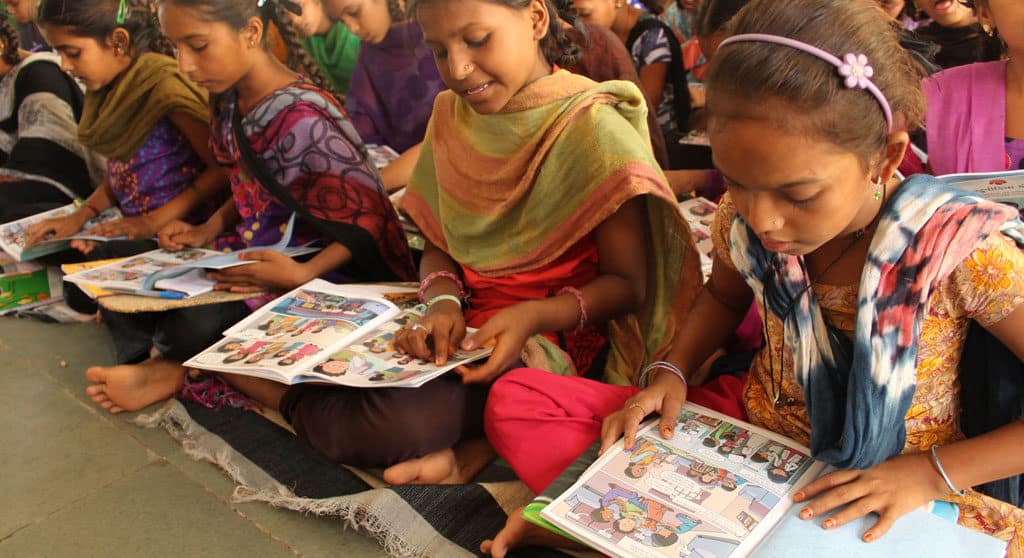
Following the Delhi gang rape case, India witnessed what Gupta calls a feminist tsunami where campaigns related to female issues became more visible. She saw an opportunity to reshape the conversation around periods, and launched Menstrupedia to encourage people to look at menstruation in a more positive light.
Together with husband Tuhin Paul, they created a comic book to educate girls about menstruation in a fun and engaging way, and through a medium that’s considered non-threatening, culturally sensitive and easily accessible.
“To represent girls in their different phases of puberty, we have three characters. Pinki, who has not gotten her period yet, Jiya who gets her period during the narrative of the book and Mira who has already been getting her period. There is a fourth character, Priya Didi. Through her, girls come to know about the various aspects of growing up and menstrual hygiene management,” explains Gupta.
The free online preview of Menstrupedia’ s first comic book was so popular that the publication was pre-ordered even before its first print, and enabled Gupta to raise INR 500,000 in her first – and only – round of crowdfunding – the business has since been fully sustainable from the sales of the comic books.
“Menstrupedia made it okay to talk about menstruation, and that is quite empowering for many people.”
Aditi Gupta, co-founder of Menstrupedia
Holistic sex education
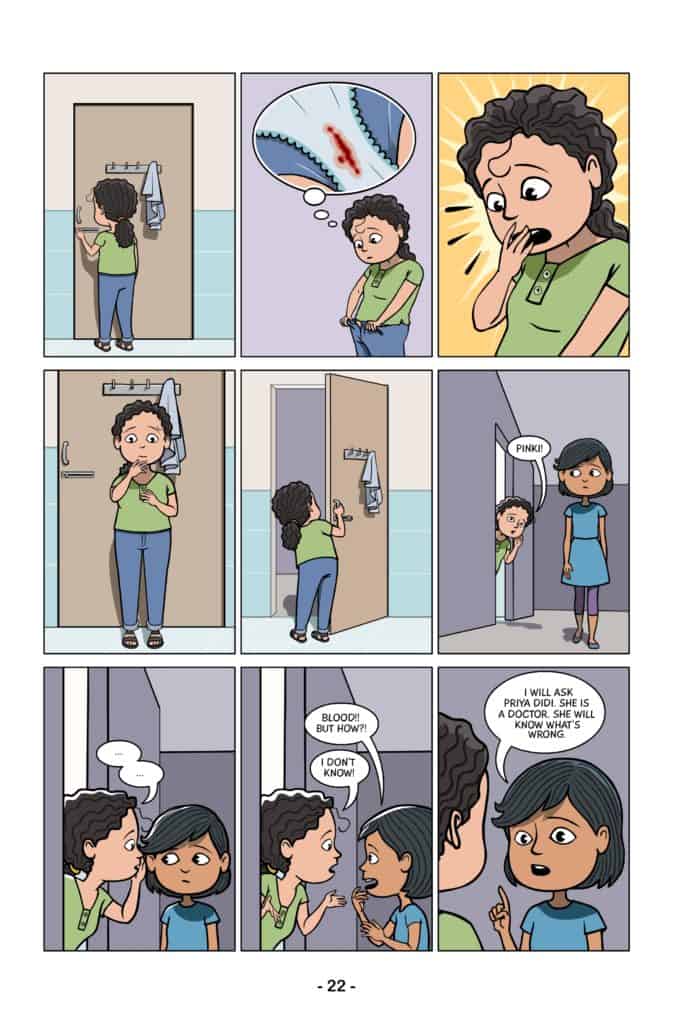
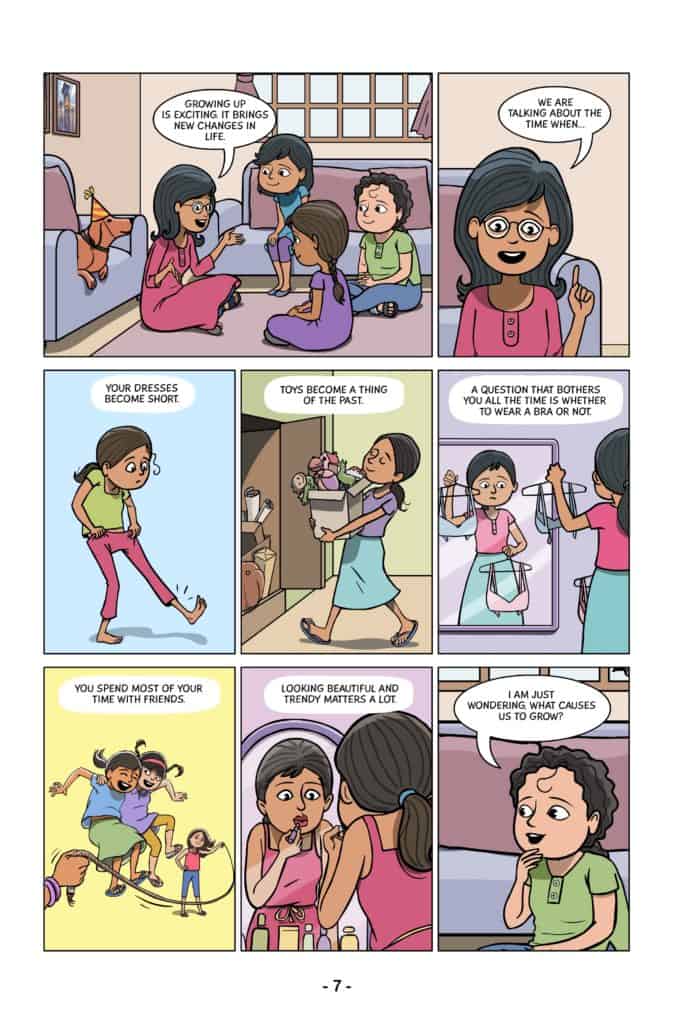
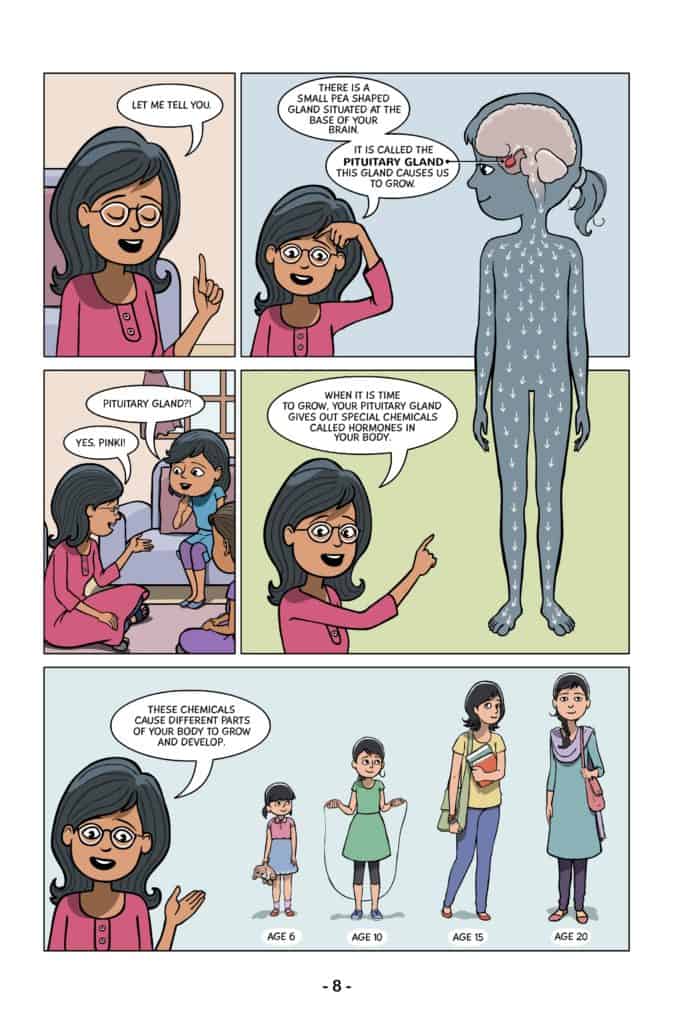
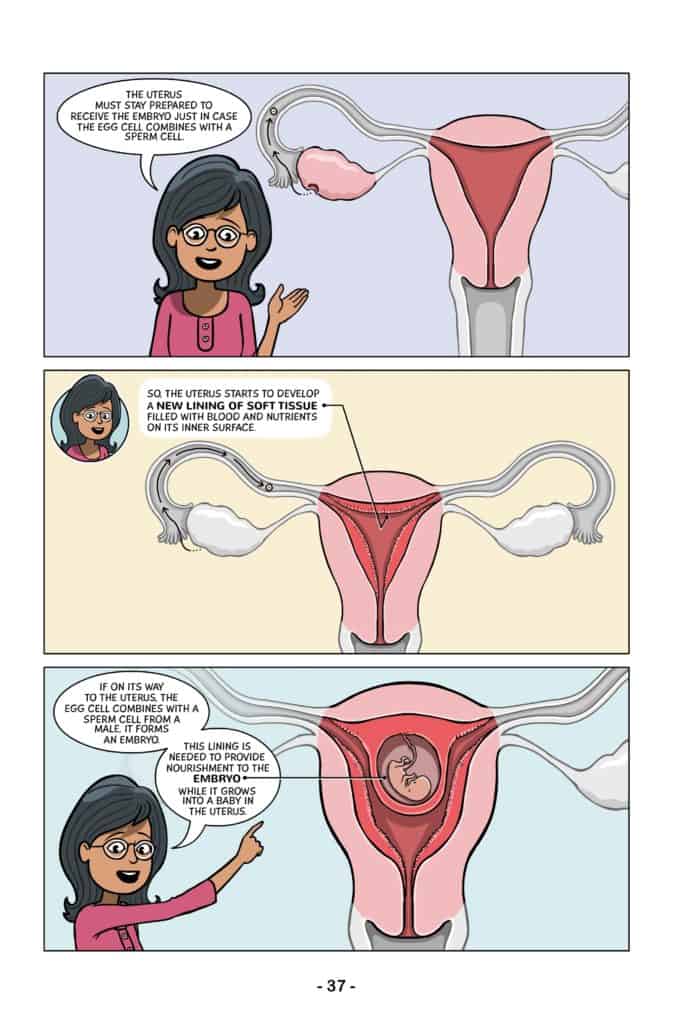
Since 2012, the Menstrupedia Comic has been translated into 12 regional languages in India and four foreign languages; it’s been shipped to 20 countries, and is locally printed, sold and distributed in China, Bangladesh, Nepal and Uruguay. The social venture has partnered with five state governments and multinational companies such as Whisper and Abbott, and its comic book is currently part of the curriculum of 6000 schools, used by 250 NGOs and 250,000 girls across India.
It’s lauded as India’s go-to website for information on periods, and includes blogs, comic strips, free educational tools and interactive videos.
“My biggest achievement so far is ensuring that the thousands of girls who are reading the Menstrupedia comic book, who are learning about menstruation at the right time, will become mothers in 20 to 30 years, and their daughters will be well-informed and won’t have any menstrual myths to follow,” shares the social entrepreneur who experienced period taboos first-hand.
Gupta resorted to using rags during her period because buying sanitary napkins was considered shameful, and was banned from a range of activities, including sitting on the family sofa, or going to the temple.
Menstrupedia is about to launch its next comic tackling the topic of boys’ puberty, which will be followed by publications addressing pregnancy, childbirth, parenting and menopause. Gupta and her team are aspiring to defy taboos related to all aspects of female and reproductive health, and provide a holistic education on these topics to girls, boys, women and men alike.
“We need to raise our girls with power, and we need to raise our boys with information. I want the girls to be proud of who they are, of their bodies. I dream of a future where menstruation is not a curse, not a disease, but a welcoming change in a girl’s life.”









